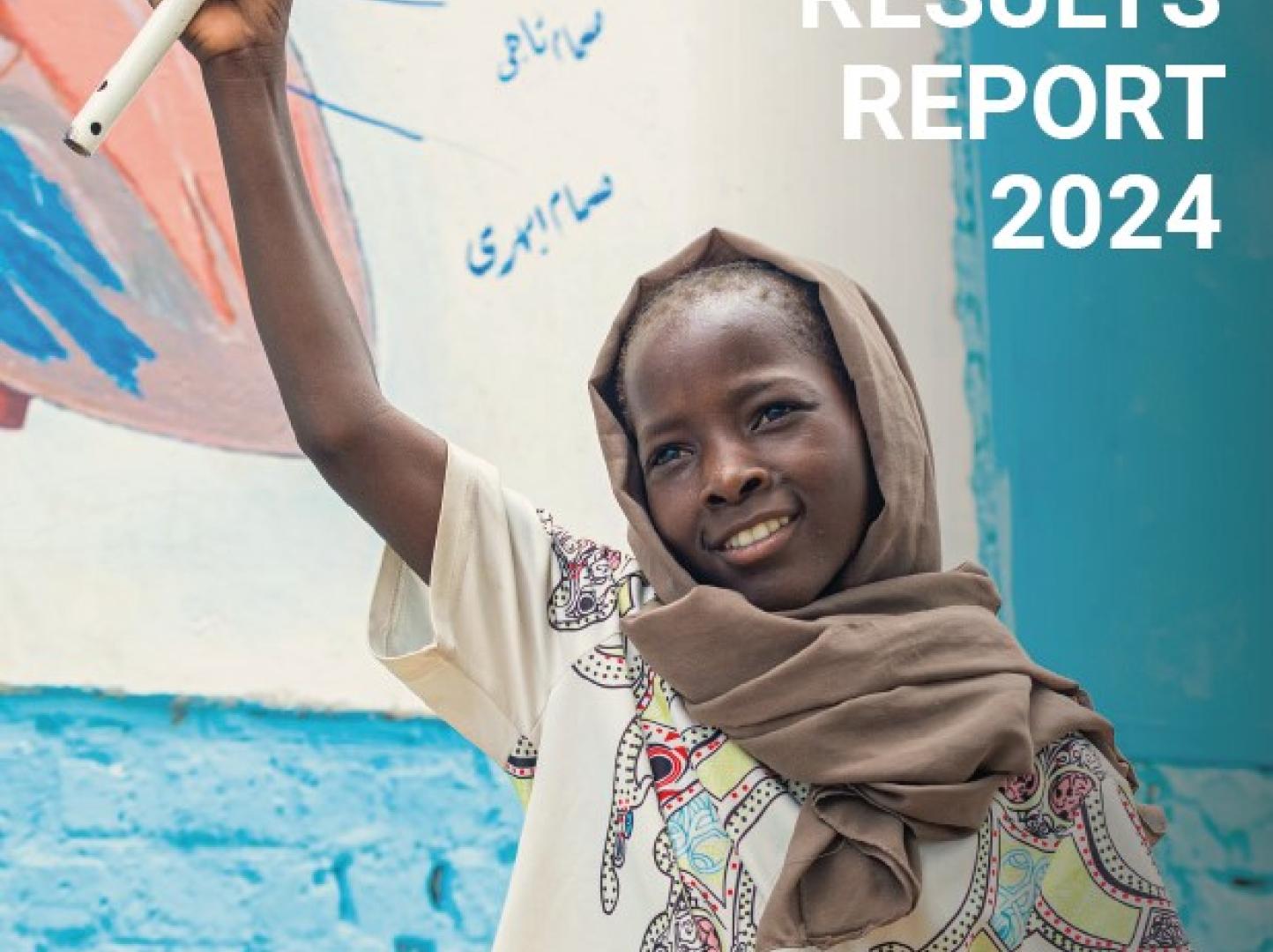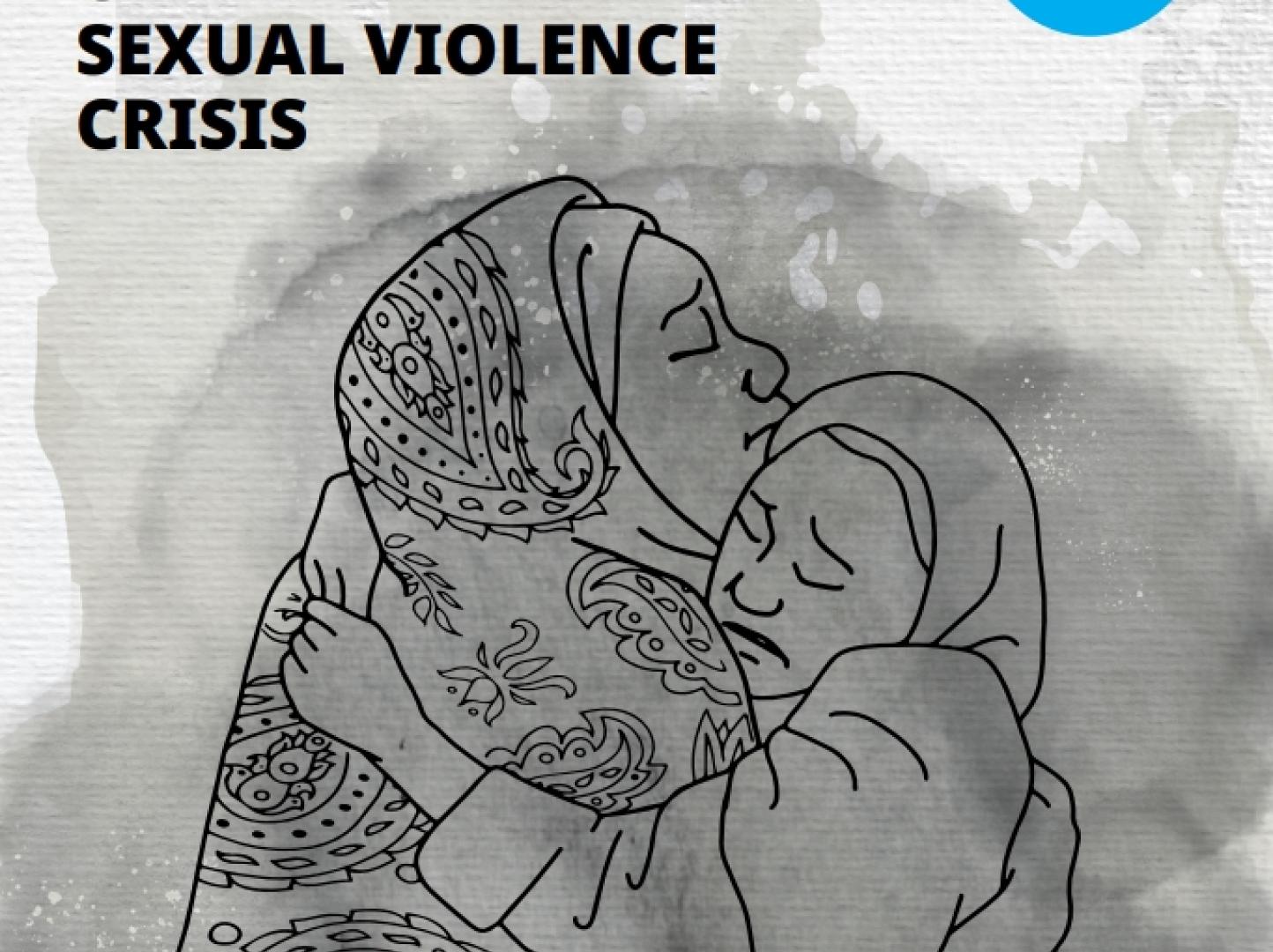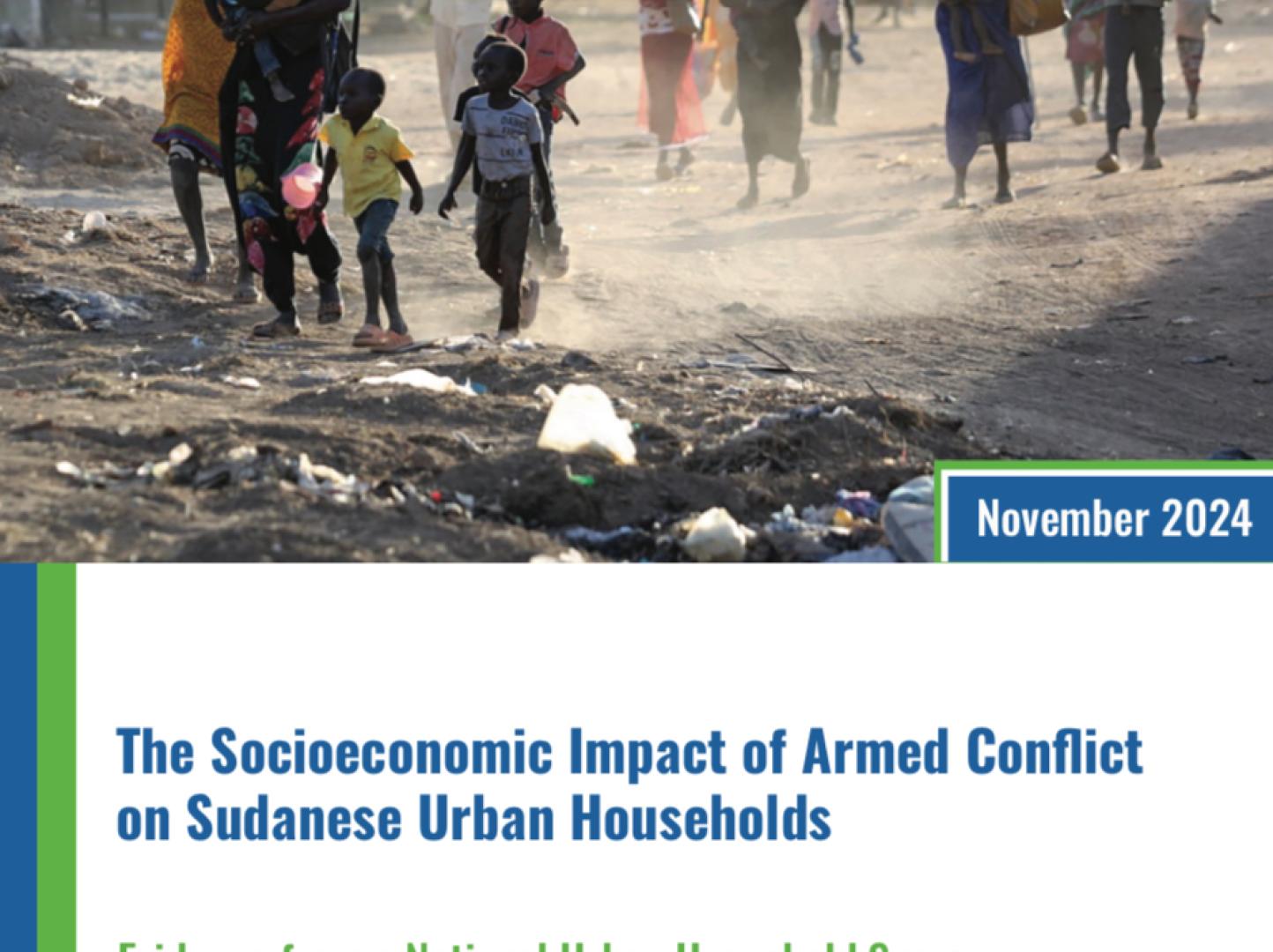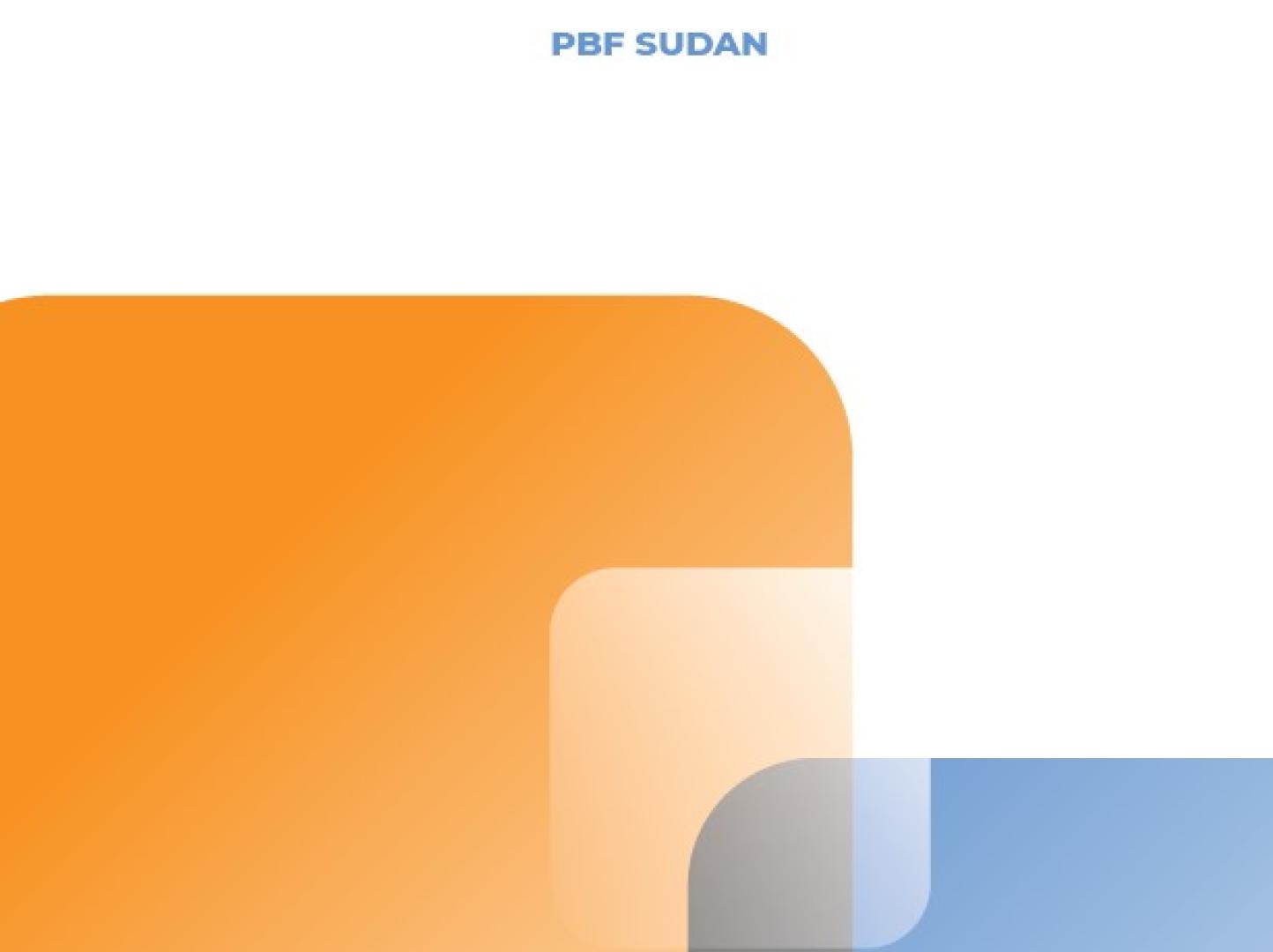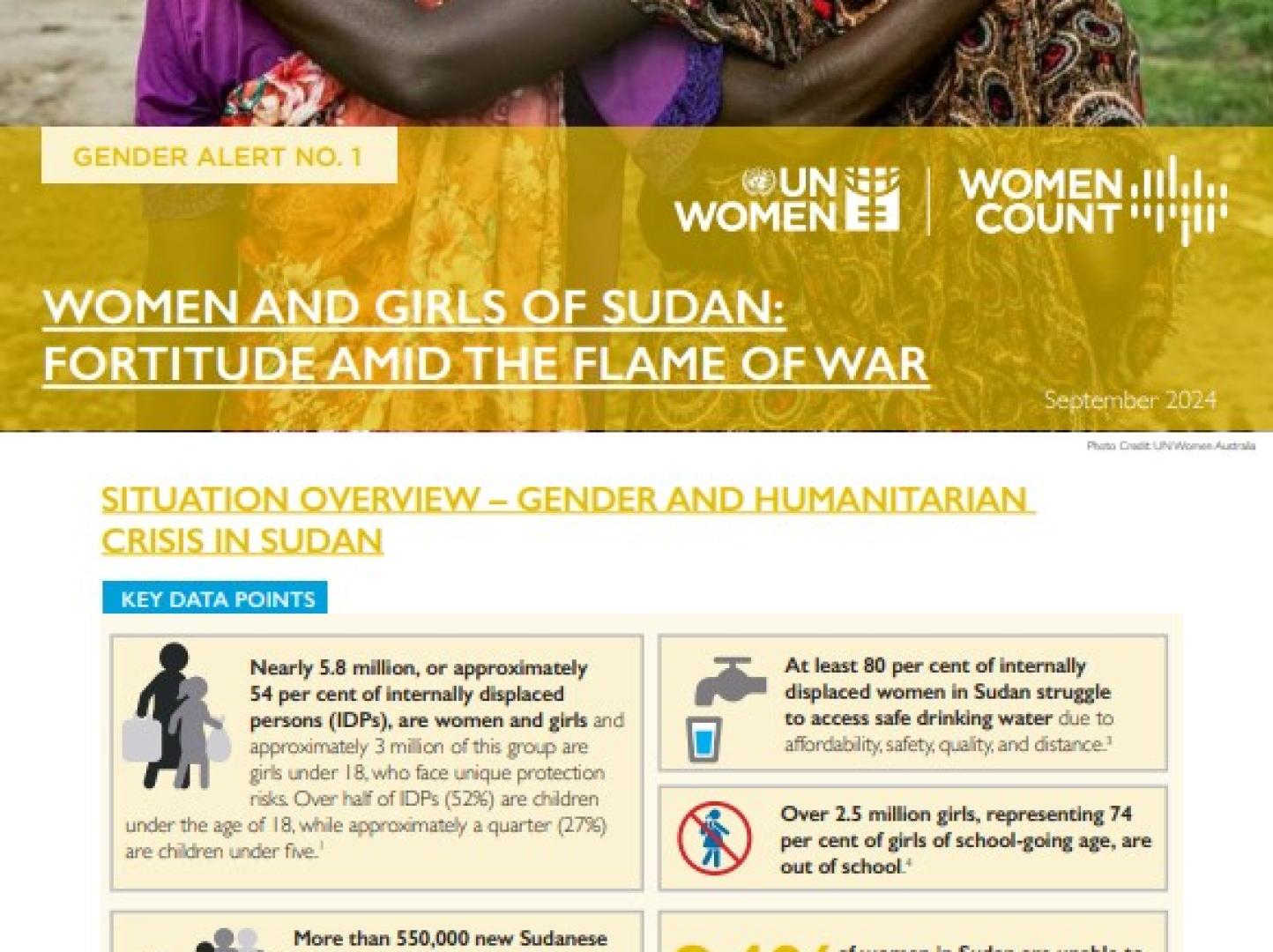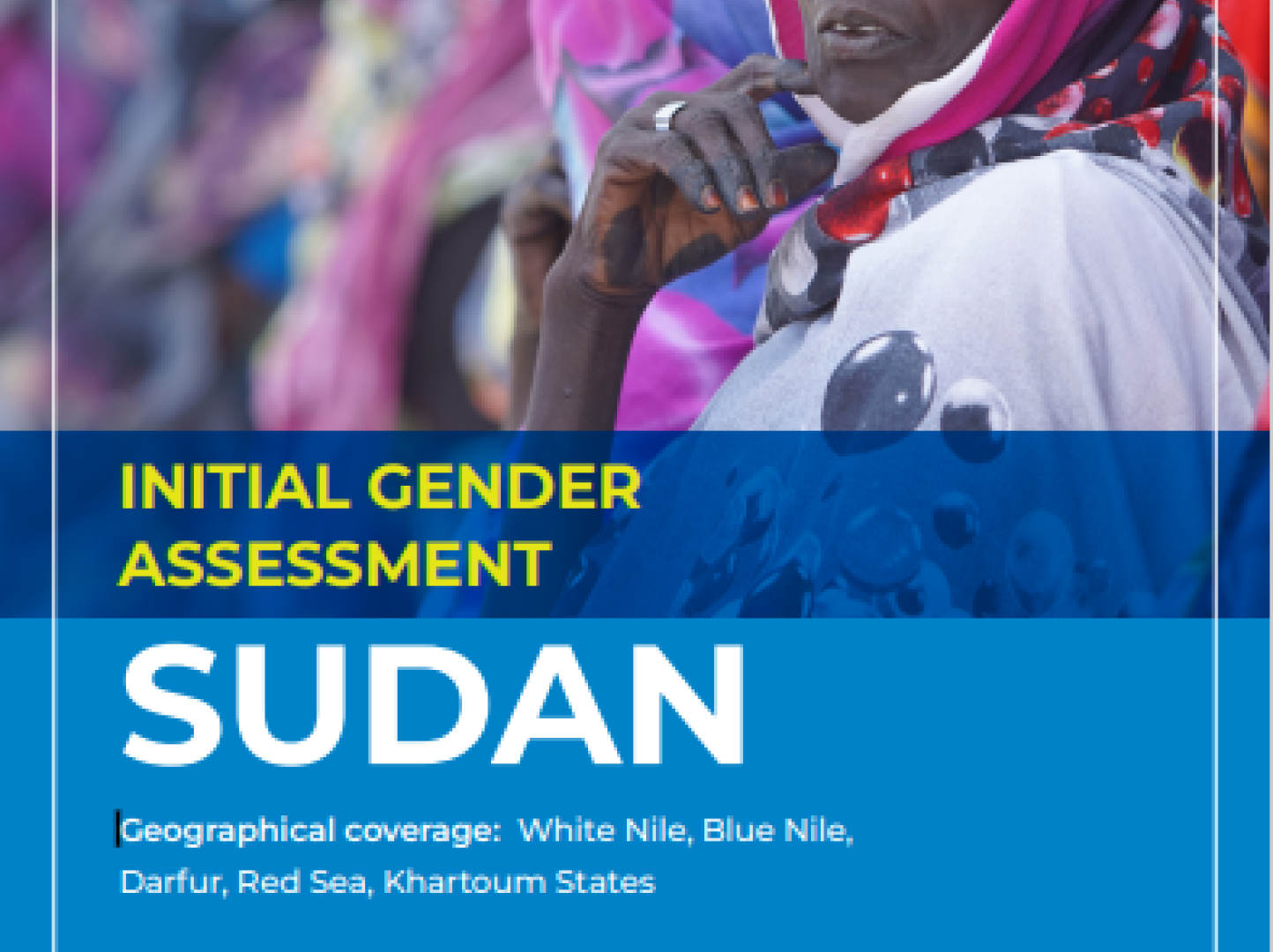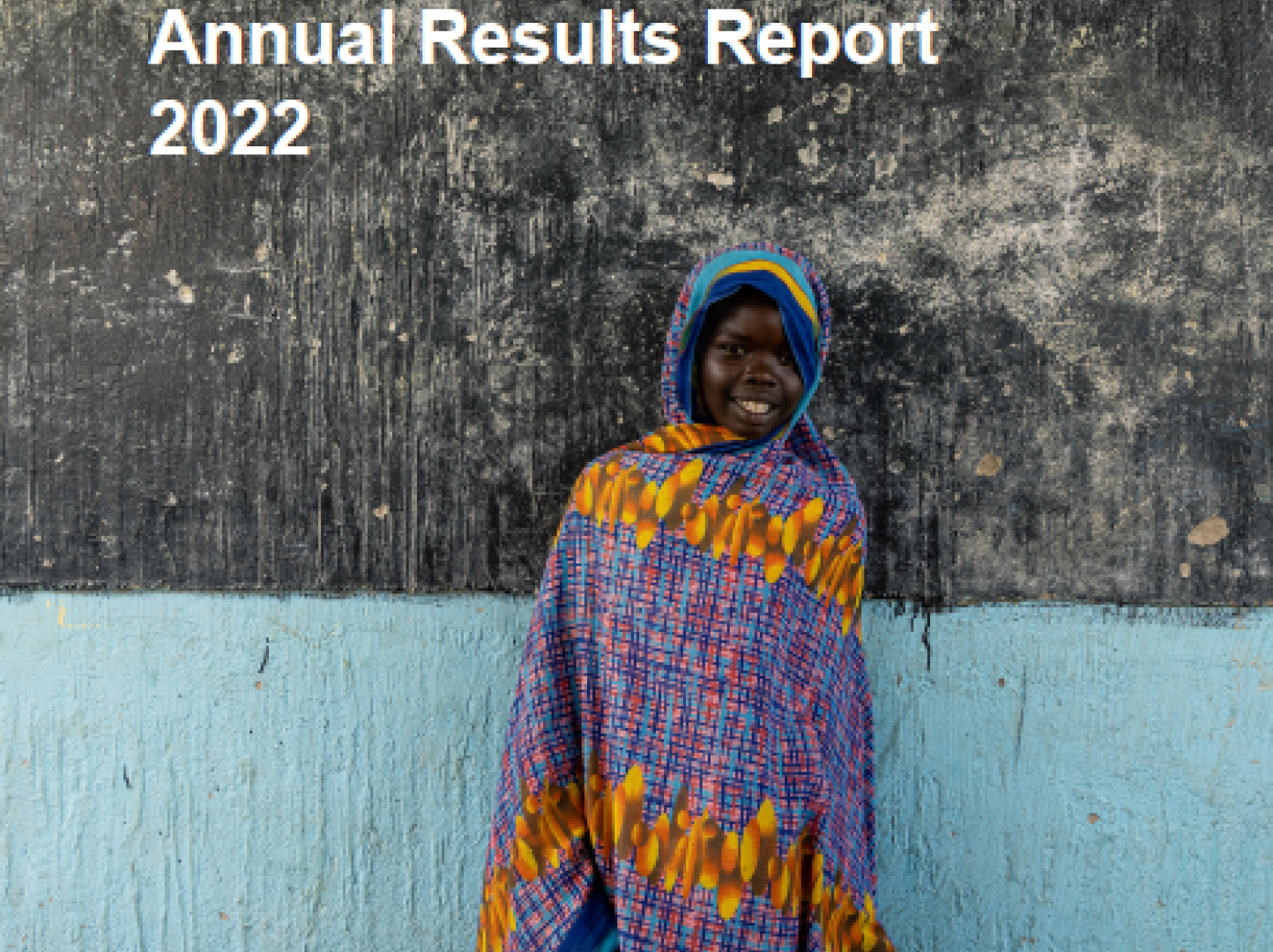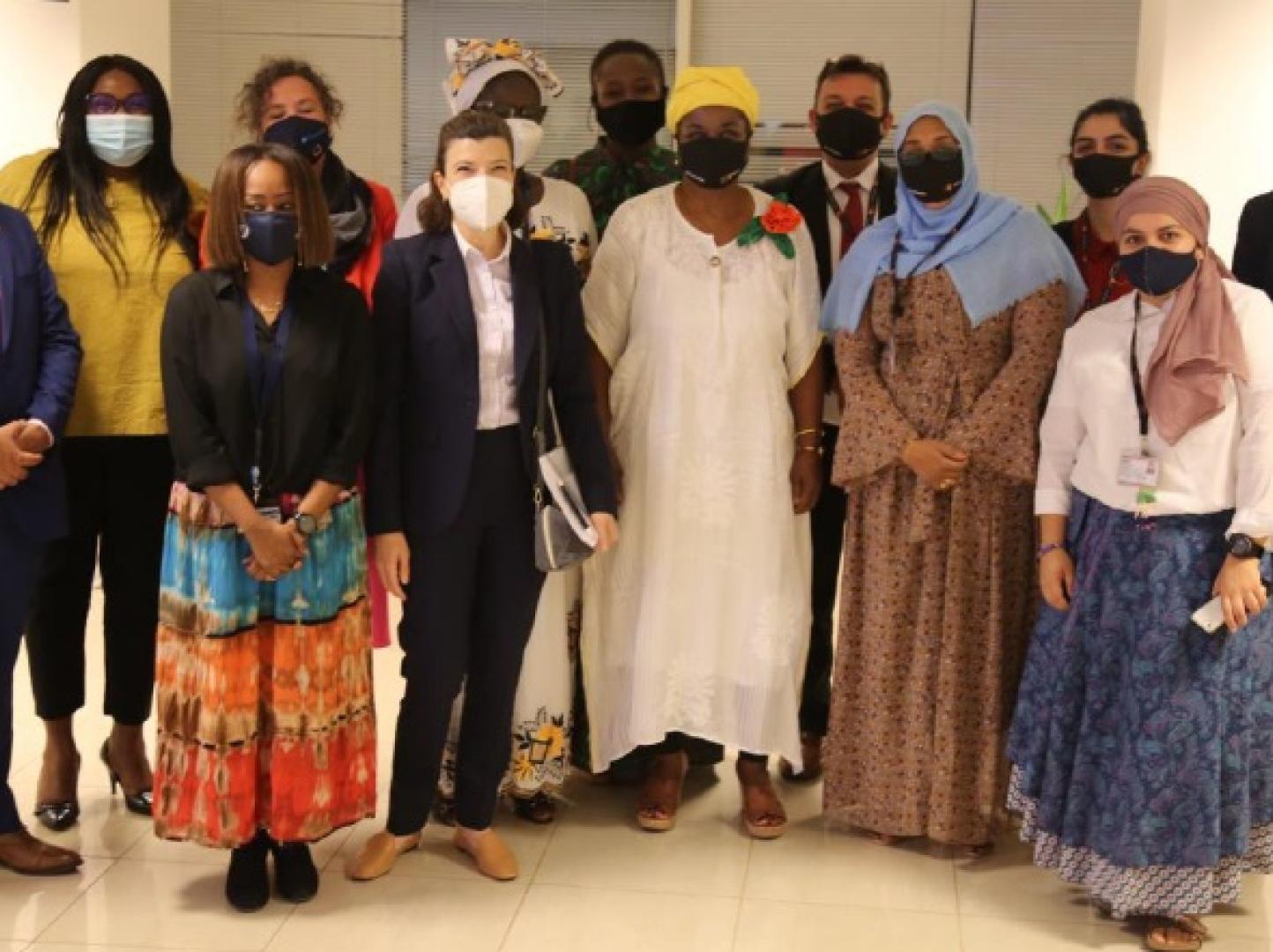Latest
Press Release
10 December 2025
WFP celebrates sorghum harvest in eastern Sudan under World Bank managed THABAT project
Learn more
Press Release
08 December 2025
Statement attributable to the Spokesperson for the Secretary-General - on Sudan
Learn more
Press Release
05 December 2025
FAO and the Government of Poland join forces to support conflict-affected households in the Sudan
Learn more
Latest
The Sustainable Development Goals in Sudan
The Sustainable Development Goals are a global call to action to end poverty, protect the earth’s environment and climate, and ensure that people everywhere can enjoy peace and prosperity. These are the goals the UN is working on in Sudan:
Photo
22 October 2025
Dengue response
WHO in Sudan is supporting the Health Ministry’s dengue response, with volunteers mobilized in Khartoum for key activities.
1 of 5
https://www.flickr.com/photos/unitednationssudan/albums/72177720329847089
Publication
04 June 2025
UN Sudan Annual Results Report 2024
2024 marked yet another challenging year for Sudan.After nearly two years of ongoing conflict, Sudan has become the world’s largest humanitarian crisis. More than 12 million people have been displaced within the country and across its borders. Famine was confirmed by the Integrated Food Security Phase Classification (IPC) in 10 locations, with an additional 17 areas teetering on the brink of famine.In April 2024, the UN and its partners launched a Famine Prevention Plan to scale up lifesaving assistance, including cash assistanceand community-based interventions, while advocating for broader humanitarian access. With $1.8 billion received in support last year, humanitarian organizations reached more than 15.6 million people across Sudan. Assistance included food and livelihoods support for more than 13 million people; water, sanitation and hygiene support; health, nutrition and shelter assistance.Notable progress was achieved through UN programmes and activities that implemented a mix of humanitarian and resilience interventions, including the successful delivery of aid across conflict lines to south Khartoum, marking the first such access since the conflict begun. The first batch of humanitarian assistance from the World Food Programme (WFP) arrived in South Darfur. Access to improved basic water service reached 9.8 million people, 9.2 million received cholera vaccinations, and a malaria vaccine was introduced. Nearly 55,500 at-risk youth received vocational training. In addition, 300,000 square meters of land were cleared of mines, 19 human rights forums were held, seven human rights monitoring missions were conducted, and the National Committee to Combat Human Trafficking resumed activities.However, humanitarian and development needs continue to grow, while insecurity and looting of partners’ assets and supplies have severely hampered response efforts. Targeted attacks, including airstrikes and assaults on aid convoys, further disrupted operations and tragically resulted in the deaths of United Nations employees in 2024.I would like to thank our partners and the dedicated UN staff in Sudan and beyond for their unwavering commitment and sacrifices in the face of such a challenging environment. The UN remains committed to sustaining and expanding our lifesaving efforts, while working to create conditions for recovery, strengthen resilience, and support a return to political negotiations, ultimately striving to alleviate human suffering and bring peace to millions of Sudanese.Clementine Nkweta-SalamiResident and Humanitarian Coordinator in Sudan
1 of 5
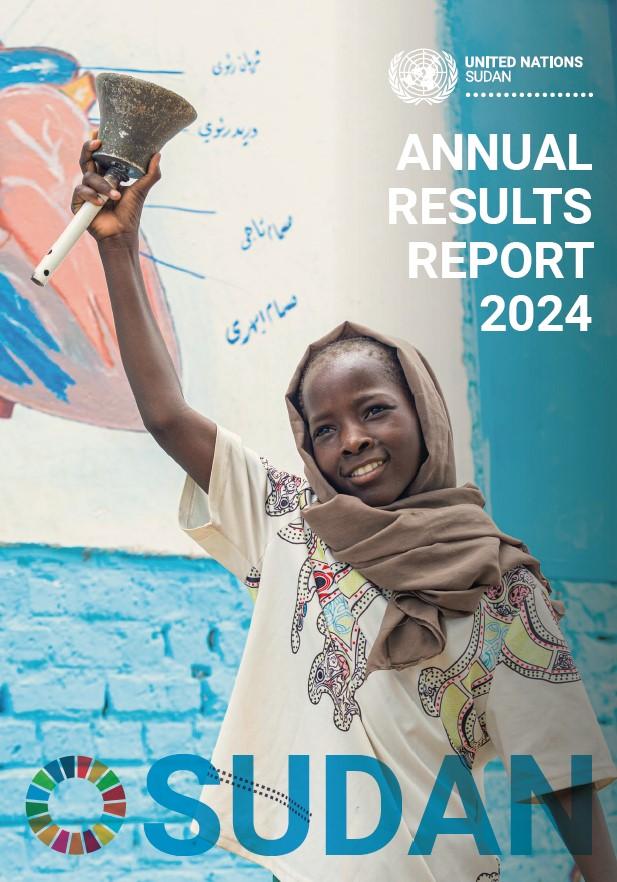
Publication
04 March 2025
UNICEF: Sudan’s child rape and sexual violence crisis
The conflict that erupted in Sudan in April 2023 has driven millions of people from their homes. All parties to the conflict have been accused of abuses of human rights, including grave violations of children’s rights. The conflict has spawned a humanitarian crisis – famine, disease and displacement – that has grabbed headlines. But less often reported is the severe protection crisis, especially the widespread perpetration of sexual violence against children. ‘Sudan’s child rape and sexual violence crisis’ highlights the voices of courageous and resilient women and girls interviewed by UNICEF in an effort to increase the attention, protection and aid children in Sudan receive. No person, no child, should have to endure these horrors. March 2025Press Release
1 of 5
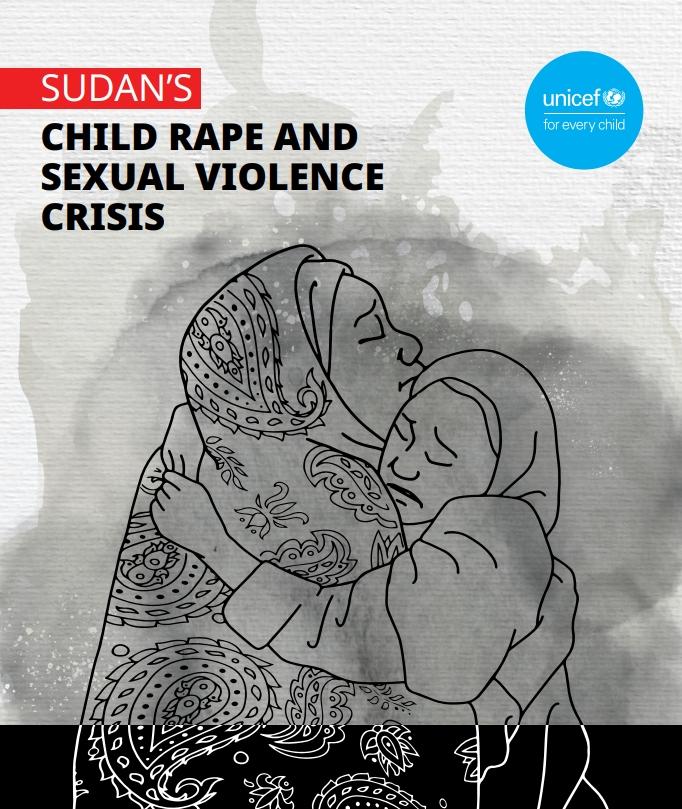
Publication
12 November 2024
The Socio-Economic Impact of Armed Conflict on Sudanese Urban Households
New Study: Short-term humanitarian aid alone insufficient to address severe deterioration in employment, income, access to essential services and food security.Economic revival, social protection, and infrastructure rehabilitation are critical for urban recovery in Sudan.Nairobi, 12 November 2024 – Eighteen months of war have deeply affected urban households in Sudan: 31 percent have been displaced, full-time employment has plummeted by half, over 70 percent of the urban households in Sudan had all or some of school-aged kids stop attending school, and only one out of seven urban households can access full health services—concluded a new joint study from the United Nations Development Programme (UNDP) and the International Food Policy Research Institute (IFPRI), launched today."The Socioeconomic Impact of Armed Conflict on Sudanese Urban Households" study provides a comprehensive assessment of how the ongoing conflict affects urban households in Sudan. With two-thirds of the fighting concentrated in cities of over 100,000 people, understanding impacts of the war on urban livelihoods is crucial for addressing both immediate economic challenges and long-term development obstacles. The study is based on analyses of a comprehensive survey of urban households across the country that both organizations conducted between May 2024 and July 2024, including 3,000 households."The ongoing conflict is intensifying already critical challenges, including widespread food insecurity," said Khalid Siddig, Senior Research Fellow and Program Leader for the Sudan Strategy Support Program at IFPRI. "In 2022, before the conflict began, only half of the population reported being food secure. Since then, the proportion of food-secure urban households has plunged from approximately 54 percent to just 20 percent.”The study observes that while the share of the population receiving assistance has increased overall during the conflict, a substantial 76 percent of the population reported receiving no assistance at all. Most reported relying on personal networks of family members and friends, rather than government institutions, international humanitarian agencies or domestic civil society organizations.“This study reveals significantly deepening vulnerabilities that Sudanese urban households are facing today on many fronts. No single intervention can adequately address this unfolding and multifaceted development crisis” stressed Luca Renda, UNDP Resident Representative in Sudan. “Expanding immediate short-term humanitarian relief is critical to help people survive and cope, but it will not be sufficient. It must be coupled with longer-term, development focused interventions that can help foster resilience and enable recovery.”The study emphasizes that addressing the challenges facing urban households in Sudan requires comprehensive, holistic multi-sectoral responses that go beyond a focus on alleviating immediate suffering to lay solid foundations for a sustainable recovery and durable resilience. Key actions required include:Implementing economic recovery programs that prioritize microfinance and business development services for more stable self-employment, support to small business, and vocational training.Expanding urban agricultural initiatives to help diversify food sources and offer sustainable access to the components of nutritious diets.Improving healthcare access by immediately deploying mobile health clinics while restoring and expanding affordable healthcare services.Restoring remote learning solutions and platforms as well as community-based centres to ensure that Sudan’s human capital is not irreversibly harmed, while working on rebuilding the education system with a focus on providing financial assistance to affected families.Increasing private-public partnerships and investment in decentralized systems, such as solar energy, rainwater harvesting and local sanitation solutions while working on restoring water, sanitation, and electricity infrastructure systems.Expanding and strengthening formal social protection programs to foster greater economic resilience, reduce reliance on informal networks and ensure that aid reaches the most vulnerable.Prioritizing housing, healthcare, and livelihood opportunities for displaced households.Additional Key FindingsThe proportion of urban households reporting having no income or employment has " surged to 18 percent compared to 1.6 percent pre-conflict. Unemployment is projected to surpass 45 percent by the end of 2024.While Sudan is now among four countries in the world with the highest prevalence of acute malnutrition, estimated at 13.6 percent, nearly half of the urban population faces moderate to severe food insecurity.Over 56 percent of urban households reported being in poorer or much poorer health than they were pre-conflict, as access to full health services dropped dramatically from 78 percent to 15.5 percent.While 63.6 percent of urban households reported that all school-age children in the household have ceased attendance, over 88 percent had at least one school-aged child ceased attending school since the conflict began.Access to piped water has decreased from 72.5 percent to 51.6 percent, while nearly 90 percent of households reported deteriorating reliability of electricity supply. The Arabic version of the report will be available shortly For more information and to arrange interviews, please contact:UNDP | Robert Few | UNDP County Office in Sudan Robert.Few@UNDP.orgIFPRI | Evgeniya Anisimova | Media and Digital Engagement Manager | IFPRI – Washington DC e.anisimova@cgiar.org | +1 (202) 726-4394 About IFPRIThe International Food Policy Research Institute (IFPRI) provides research-based policy solutions to sustainably reduce poverty and end hunger and malnutrition. IFPRI’s strategic research aims to identify and analyse alternative international and country-led strategies and policies for meeting food and nutrition needs in low- and middle-income countries, with particular emphasis on poor and vulnerable groups in those countries, gender equity, and sustainability. It is a research centre of CGIAR, a worldwide partnership engaged in agricultural research for development. www.ifpri.org About UNDPUNDP is the leading United Nations organization fighting to end the injustice of poverty, inequality, and climate change. Working with our broad network of experts and partners in 170 countries, we help nations to build integrated, lasting solutions for people and the planet. http://www.undp.org
1 of 5
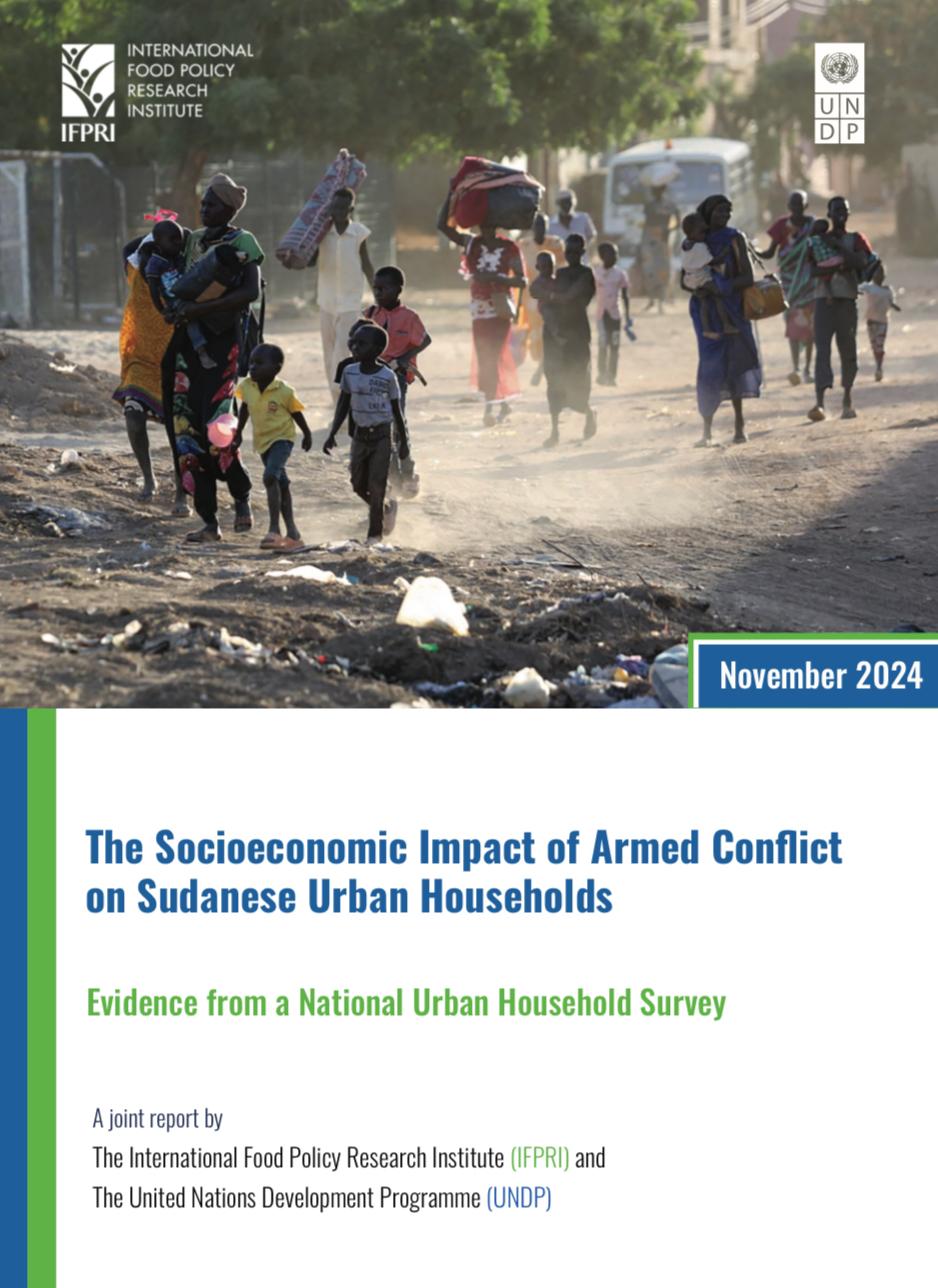
Publication
29 September 2024
Women and girls of Sudan: Fortitude amid the flame of war
This publication provides a detailed analysis of the ongoing humanitarian crisis in Sudan, focusing on its disproportionate impact on women and girls. As the country faces the largest internal displacement since the Syrian civil war, millions of Sudanese, particularly women and children, are grappling with severe challenges.This report highlights key data on displacement, malnutrition, lack of access to healthcare, gender-based violence, and food insecurity. It also explores how deeply entrenched gender inequality exacerbates the vulnerabilities of female-headed households and the critical barriers women face in accessing essential resources. It also offers a comprehensive overview of the socio-economic and health impacts on women and girls, drawing from recent assessments and data.The report emphasizes the need for targeted humanitarian interventions. We consider it as an essential resource for understanding the gender dimensions of Sudan’s humanitarian crisis and calls for focused action to mitigate its effects.
1 of 5
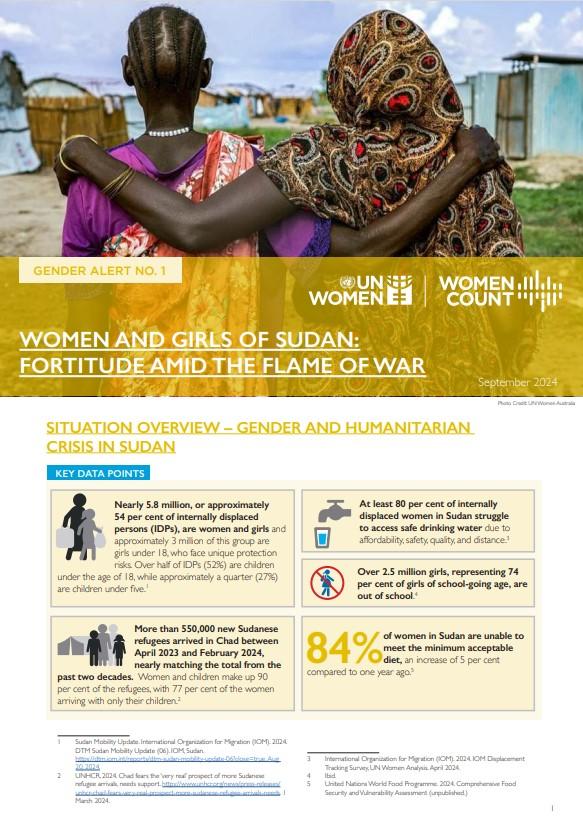
Story
29 November 2025
UN Country Team Meets Sudanese Women Leaders in Khartoum to Strengthen Collaboration Amid Ongoing Conflict
Port Sudan – Khartoum, 25 November 2025 –The United Nations Country Team (UNCT) held its first meeting in Khartoum since the 2023 conflict began, engaging directly with 13 Sudanese women leaders from across the country to hear directly about their experiences and the support they require from the UN amid the ongoing crisis. The dialogue reaffirmed the UN's commitment to this critical agenda, in line with UN Security Council Resolution 1325 on Women, Peace and Security.Women leaders highlighted the resilience of Sudanese women and the critical role of Women-Led Organizations (WLOs), which often serve as the sole providers of assistance despite severe challenges. Participants raised urgent concerns, calling for strengthened protection and services for survivors of conflict-related sexual violence, enhanced accountability, and full, meaningful inclusion of women in all decision-making and peace processes. They further requested increased, flexible funding and sustained engagement for WLOs. Denise Brown, UN Resident and Humanitarian Coordinator, emphasized that “The voices of Sudanese women are indispensable to shaping solutions for Sudan’s future. We are committed to turning today’s dialogue into concrete actions.” As a next step, the UNCT and women leaders will jointly develop a follow-up plan detailing specific actions on protection, participation, and expanded support for WLOs, guiding coordinated UN efforts in the months ahead.
1 of 5

Story
08 November 2025
Trapped, torn, but holding on
In Sudan, children are bearing the brunt of a war they did not start.For more than 600 days, 12-year-old Maryam and her family were trapped in Al Fasher, North Darfur. Food was scarce — often there was none. Medicines ran out. Water was difficult to find.“We tried to leave several times,” she recalls. “But each time, the fighting got worse. We had to stay.”Together with other families, Maryam’s family prepared meals in a communal kitchen whenever food was available. It was there that her life changed forever.“I heard a loud explosion from our shelter,” she says, her voice trembling.“When I arrived, all I could see was rubble and bodies on the ground.”Almost everyone in the kitchen had died. Those who survived were badly injured. Her father lay on the ground, bleeding, before he and the others were rushed to a nearby hospital.Her mother had stepped out to a nearby shop earlier that day — and never returned. It has been more than a week since Maryam last saw her.As the fighting grew closer, Maryam and the remaining families had no choice but to flee. Her questions about her mother went unanswered.“All they said was that we had to leave,” she says quietly.They walked for days — through villages, by night and day — facing exhaustion, hunger and fear before finally reaching Tawila, a small town that now shelters tens of thousands of people who fled Al Fasher during the recent escalation. Today, Maryam shares a makeshift shelter with other displaced families. She waits — and hopes.“I haven’t heard anything about her since,” she says.“She didn’t have a phone, and neither do I. All I can do is wait.”Every morning, she wakes up hoping that her mother will find her — that she will call her name, return to her side, and bring back the sense of safety she once knew. She also dreams that her father survived and will come for her.In Tawila, the number of displaced people has more than doubled in recent weeks. In almost every shelter, there is a child like Maryam — children whose lives have been scarred by war. A generation growing up with fear and trauma, yet holding on to fragments of hope. UNICEF and partners are on the ground in Tawila, Mellit, and Kutum, delivering life-saving support to children and families fleeing the violence — providing clean water, nutrition, healthcare, education, and psychosocial support to help them rebuild their lives and find strength amid loss.
1 of 5
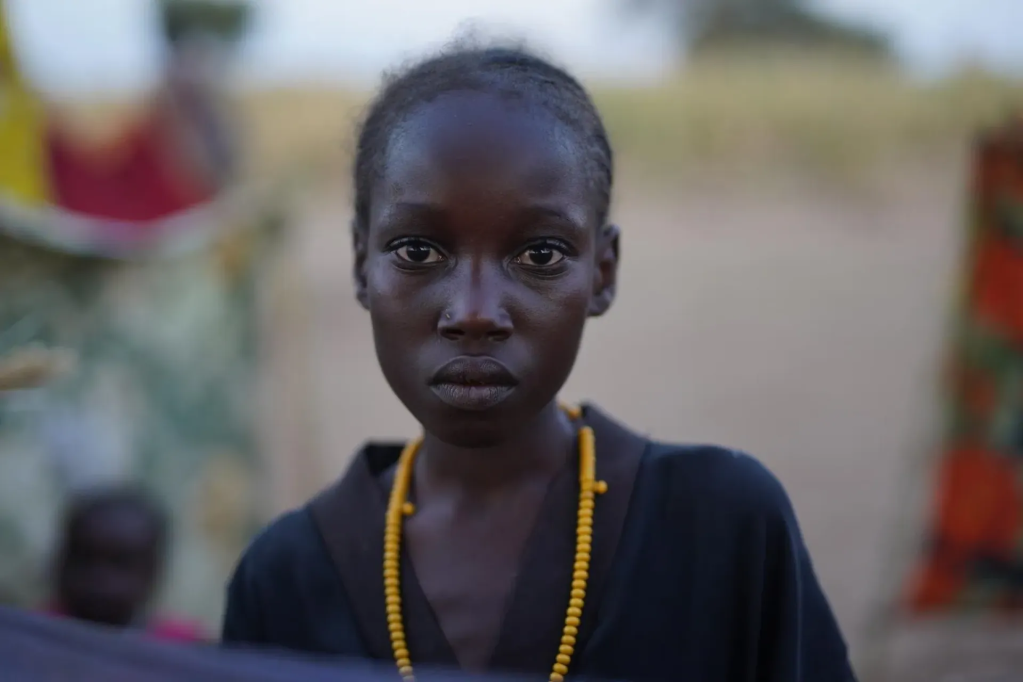
Story
26 October 2025
Sowing hope for a better tomorrow through farming in Sudan
By Alejandra Romo Garcia in White Nile, Sudan In Sudan, years of armed conflict have displaced millions and disrupted food production across vast areas of the country. As farming systems collapse, families struggle to access nutritious food, earn an income, and meet their most basic needs. For many communities affected by displacement and insecurity, growing food has become increasingly difficult - if not impossible.To help address these challenges, UNHCR and its partners, in partnership with the Mastercard Foundation, are implementing climate-resilient farming in areas affected by displacement. The initiative provides access to land, tools, seeds, and technical training for 20,000 refugees, internally displaced people and members of the host community. It also includes support with irrigation, group farming, and access to savings and financial services.The goal is to help communities restore food production, enhance household nutrition, and strengthen livelihoods. Farming activities are tailored to local conditions, and participants receive training in sustainable practices that support long-term recovery.In White Nile State, where over 370,000 South Sudanese refugees have sought refuge, these efforts are already having an impact in people’s daily life.Haifa Bakhit, 19, escaped Khartoum with her mother in April 2023 when violence intensified. Now living with extended family in a host community, she is actively participating in the agriculture programme. Haifa joined a group farm supported by the project and quickly became involved in every stage of the growing cycle.“We left everything. My father stayed behind, and we haven’t heard from him since,” she shares.Working on the land has given Haifa a renewed sense of purpose. She and her mother contribute to each step of the production process - digging, sowing, weeding, and preparing for the harvest. “We have participated in all the farming process, preparing the land, sowing, weeding. When we harvest, we’ll receive a share of the wheat and contribute to a group savings plan,” she says. Beyond the group farm, Haifa is thinking ahead. She received vegetable seeds through the programme and now hopes to grow food at home - an effort that could improve her family’s nutrition and even generate extra income. “We received vegetable seeds to grow them this season and I’m very curious to farm vegetables, it gives me hope, something to look forward to.” Haifa’s quiet optimism shows how access to land and tools can open up new possibilities - from daily survival to long-term recovery.In Khor Al Warel refugee camp, James Abal brings decades of lived experience to the farming initiative. A father of six, he fled South Sudan in 2016 and has lived in the camp ever since. As a child, James lost his arm during ethnic violence. Years later, during forced displacement, he also lost his artificial hand. Arriving at the camp without equipment or support, James feared his days of farming were behind him. “When I arrived at the camp, I had nothing, not even the tools. I used to work back home,” he explains. The project helped James reconnect with a role he knows well. He joined a group farm and was assigned a responsibility suited to his abilities - guarding the crops from animals. His team welcomed him with trust and kindness. “They welcomed me into a group farm. Because of my disability, I was assigned to guard the farm from animals, and the group supported me with meals and kindness.” He remains an integral part of the team and takes pride in their progress. After months of effort, the wheat fields are nearly ready for harvest. James and his fellow farmers are counting on the yield to feed their families and take the next step in their recovery. “We expect 100 sacks of wheat, and each member will get two sacks. That’s enough to feed my family. Next season, we hope to grow vegetables and sell them in the market.”For James, the farming group is more than a livelihood - it is a source of dignity, purpose, and community. As he looks ahead, his hopes extend far beyond the harvest.“I hope to get a new artificial hand and more support to keep my children in school. But more than anything, I hope for peace for Sudan, and for our community,” James says. Through shared farms and group activities, the project is creating opportunities for displaced families to rebuild their lives. Participants are learning practical skills, strengthening local food systems, and forging connections amongst refugee and host communities.In partnership with the Mastercard Foundation, UNHCR and partners are scaling up these efforts - helping people like James, Haifa, and thousands of others not just survive, but thrive, rebuild, and lead their communities forward.
1 of 5

Story
22 October 2025
Polio stops here: Hanan’s mission to protect every child in Darfur
Years of listening, talking, and addressing fears around vaccines are paying off for Hanan, a vaccinator in Zalingei. Today, wherever she goes, children follow- and parents welcome her warmly. Their trust is the result of years of dedication and genuine care. Polio in DarfurWhen Hanan heard about the new polio outbreak in Darfur, she was deeply worried. Even one case of this life-threatening disease puts all children at risk. With three cases confirmed in West and Central Darfur, the danger was real.An outbreak response, supported by UNICEF with funding from KSRelief, was quickly launched to protect children. And, as always, Hanan was on the frontline. Her name is now known in every neighbourhood — a testament to the trust she has earned over the years, which was essential to reaching every child under five years with lifesaving polio drops. Ending polio, one home at a timeVaccine carrier on her shoulder and assistant by her side, Hanan joined mobile teams moving door to door.For more than ten years, she has vaccinated children against killer diseases in Zalingei. Her reputation precedes her — families open their doors without hesitation.“I do not face any challenges with families,” she proudly says.“Parents know me and what I advocate for. So, they bring their children whenever they see me.”At the next house, Mozamil, a father of a four-day-old baby, is waiting.“I stayed home when I heard the vaccinators were coming today,” he says with a smile as Hanan gives his son the lifesaving drops.Overwhelmed with joy, Hanan adds: “It’s moments like this that push me to stay on the frontline for children. We cannot fail parents like Mozamil. We cannot stop even during the war — vaccination is even more important now because families are constantly moving across the border to and from Chad.” The cost of war on childhood immunizationsAs the war in Sudan drags on, basic health services — including routine immunization — have been disrupted, and in many areas completely stopped. Vaccine coverage has dropped, resulting in outbreaks of polio, measles, and other preventable diseases that have claimed children’s lives.In 2025 alone, a total of 465 Acute Flaccid paralysis (AFP) cases - suspected polio cases - have been reported in Sudan — a harsh reminder of the cost of interrupted immunization programmes.UNICEF continues to support the Ministry of Health to sustain immunization services against all odds — strengthening the cold chain, procuring and delivering vaccines even in the most hard-to-reach and insecure areas.But without trusted frontline workers like Hanan, vaccines would never become vaccinations.Through their efforts, over 500,000 children under five years were reached with polio drops in the latest outbreak response campaign — surpassing the target population.Community trust in vaccinators like Hanan, combined with UNICEF-supported outreach through local radio, megaphone announcements, door-to-door awareness, and engagement of religious leaders, helped address fear and hesitancy and ensured a high vaccine uptake.The road to the campaignAccessing Darfur remains challenging. But through coordinated efforts and cross-border support, the Federal Ministry of Health led a campaign that:Procured and delivered vaccines to the Darfur states;Supplied finger markers and other materials;Activated community awareness drives ahead of the campaign;Trained and deployed over 4,500 vaccinators and 4,500 registrars.Stopping polio, one step at a timeUnder the scorching sun, wearing her yellow cap and carrying her vaccine carrier, every step Hanan took was a step closer to her dream — a generation free from vaccine-preventable diseases.“The safety of children was my biggest motivation,” she says.“Whenever I saw a smiling, finger-marked child, I felt energized to keep going.”
1 of 5
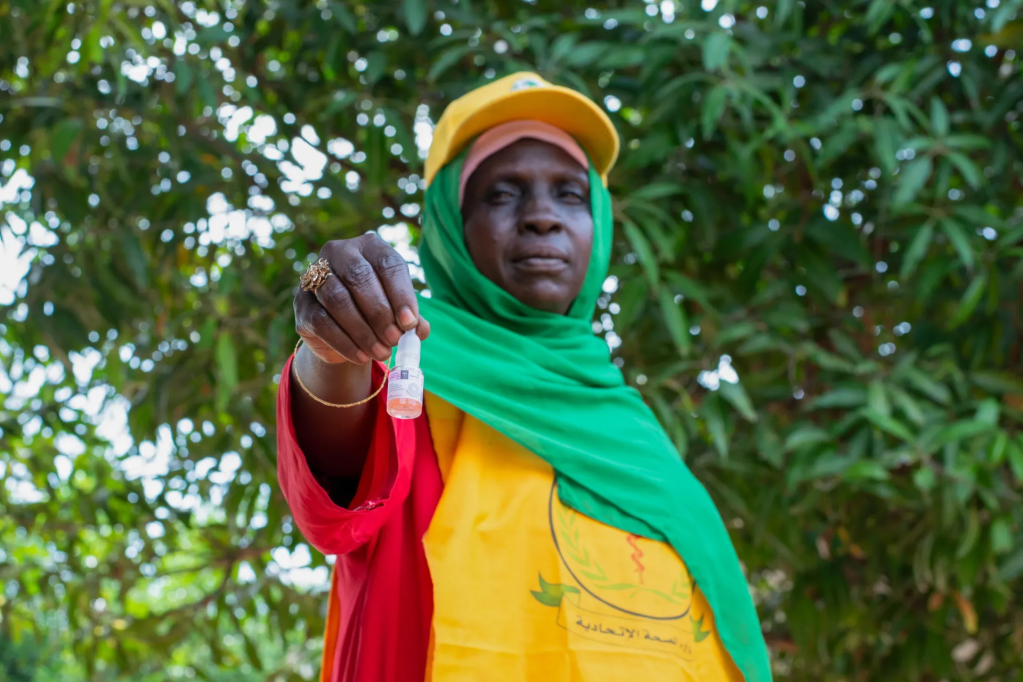
Story
14 October 2025
Together is the only way: Voices from Sudan’s forgotten war
It was a Saturday morning, the 15th of April 2023. A day that began like any other in Khartoum. My son along with his cousins went to university. Soon after, my phone rang. My son’s voice was shaking: “Mama, RSF is coming to the university parking lot. Students are running, they’re terrified. Should I go back and take the car?” In that instant, my heart froze. I told him, “No. Leave the car. Stay with your cousins. Just get to safety.” That was the moment the war began for me and for millions of Sudanese families. None of us expected it to last this long. Many thought it was just another coup. But it became something far darker, displacing millions and devastating a country already on its knees.We had more than 200 volunteers spread across the country—many right where the fighting began. We had plans to scale up to 1,000 volunteers to support health services. In a matter of days, those plans collapsed. Suddenly, it wasn’t about growth. It was about survival.Care that goes both waysInternet, phones, and electricity disappeared. I remember typing messages in the dark, waiting desperately for a blue tick on WhatsApp—just to know someone was still alive. And yet, despite losing homes and families being displaced, volunteers kept showing up and serving. One of the UN Volunteers told me, “Even when everything feels like it’s falling apart, my work gives me purpose.” That kind of resilience is why we are here today.In all this we received tremendous support and guidance from both our Regional Office and Headquarters. They listened to us when we were in tears, asked about the safety of our families, and continually reassured us that, above all, our safety truly mattered. In May 2024, more than a year into the war, I met the Executive Coordinator who asked me, “We know you took good care of the volunteers. But how are you coping with all this stress?” That simple question reminded me that care is not only something we give outward—it must also flow inward. Shelter, support and showing upNeighbours sheltered international volunteers when the UN system failed. Families opened their doors. When the crisis hit, we had to quickly rethink how to truly support our volunteers. We took action to ease the stress they were facing: extending contracts for job security, offering daily allowances and relocation help, arranging emergency evacuations, enabling remote work and easy access to pay, and providing counselling and crisis hotlines for volunteers and their families.Every challenge is an opportunity, even the war in Sudan. How should we advocate about UN Volunteers and build partnerships on the ground? A question I was faced with as Country Coordinator. Working together for solutionsAt the start of the war, I worked to quickly connect UN teams with the volunteers they needed—without overlapping efforts. I looked at each team’s goals, who they wanted to support, and what resources were available. Based on this, I created tailored offers for each UN entity, as well as a general plan to meet broader community needs. Together with the Regional Office for Arab States, we shaped proposals for nine UN agencies, drawing on insights from country teams, project managers, and Resident Representatives. Informal conversations and networks were key in helping us respond to the needs of the UN system in Sudan—UNAIDS, UNDP, UNFPA, UNHCR, UNICEF, IOM, OCHA, WFP, and WHO. We designed volunteer roles for specialists, remote support, and emergency projects — with deployments across Khartoum and Gezira State.As the African proverb says, “If you want to go fast, go alone. If you want to go far, go together.” In Sudan, the road is long. And the only way forward is together—volunteers, agencies, and communities. As one displaced father told me: “We don’t need promises. We need people.”Do we need perfection, or do we need presence?Speaking from a crisis context, I tell you that we don’t need perfection. We just need presence. We need to listen, talk and collaborate so that UNV is present on the frontline with the partners. And that presence — that thread of humanity — is what keeps hope alive in the forgotten war of Sudan.**************For more information about UN Volunteer assignments and how you can get involved, click here. To read our stories, click here.
1 of 5

Press Release
10 December 2025
WFP celebrates sorghum harvest in eastern Sudan under World Bank managed THABAT project
The harvest marks a key milestone for a World Bank-managed project, implemented by WFP and funded by the Sudan Transition and Recovery Support (STARS) Multi-Donor Trust Fund, which has supported farmers during Sudan’s summer crop season, which started in June, with seeds and fertilizers to boost agricultural production for key staples like sorghum and wheat. Thousands of farmers across Kassala, River Nile, and Northern states are beginning to see the results of the seeds they planted under the Sudan Enhancing Community Resilience Project (THABAT). The sorghum harvest, now underway in Kassala, marks the first major output of THABAT’s initial summer season agricultural support package to smallholder farmers. The project also covers winter season crops like wheat. The winter planting season is currently ongoing with harvests expected to take place in March and April. So far during the summer season, the THABAT project has supported 16,000 farmers with more than 125 metric tonnes of sorghum seeds and 2,700 metric tonnes of fertilizers. This assistance is helping restore agricultural production severely disrupted by the conflict, enabling communities to boost production of sorghum, wheat, vegetables, and beans. In Northern and River Nile, farmers have also received support for wheat and vegetable value chains, including agricultural inputs and technical training. Altogether, farmers have cultivated nearly 44,000 feddans (about 18,500 hectares) of land, indirectly supporting nearly 200,000 people in targeted agricultural communities.“For many farmers, this harvest means stability in a time of uncertainty,” said Anna Trolle-Lindgren, Head of Partnerships for WFP Sudan, during the event. “Through THABAT, communities are not only producing food again, but they are also rebuilding their food systems’ resilience and reviving local markets and value chains that were affected during the conflict.”Farmers supported by THABAT reported improved yields due to early distribution of climate-smart quality seeds, fertilizers, and essential technical guidance on planting, soil preparation, and climate-smart practices. Nojoud Mustafa, a farmer from Kassala, said: “Without these seeds and support we simply could not have planted this year. This harvest means our children will eat.”THABAT has been instrumental in strengthening value chain development, committing up to US$100,000 for at least 80 small and medium enterprises. This funding fosters enterprise growth and enables value-added initiatives designed to increase food availability for consumers at affordable prices.An estimated 21 million people in Sudan are facing acute food insecurity driven by conflict, soaring prices, and displacement. THABAT is helping communities build a more reliable, stable, and sustainable locally driven supply of staple foods like sorghum by investing in food production to reduce hungerNote to editors:The THABAT project is implemented by WFP with support from Mercy Corps and funding from the World Bank-managed Sudan Transition and Recovery Support (STARS) Multi-Donor Trust Fund.
Winter 2024–2025 Season (Wheat)74,000 metric tons of wheat produced — contributing 18% of Sudan’s national wheat production.59,000+ feddans cultivated across Northern, River Nile, and Kassala states.25,000+ smallholder households supported with agricultural inputs.Summer 2025 Season (Sorghum & Vegetables)16,000 farmers supported with seeds and fertilizers44,000 feddans of sorghum prepared (approximately 18,500 hectares)125 metric tonnes of sorghum seeds distributed2,700 metric tonnes of Urea fertilizer distributed to sorghum farmersCommunity Empowerment & Value Chains27 women’s groups supported with small livestock.900 women-headed households received 6,300 fruit seedlings.80+ SMEs, each receiving up to US$100,000 in cash for value-addition.22 kilometer Kalahoot Canal, and other irrigation canals in Northern and River Nile states to be rehabilitated as part of irrigation support.Digital platform “Mahsool” expanded to connect farmers, SMEs, and cooperatives. # # #
Winter 2024–2025 Season (Wheat)74,000 metric tons of wheat produced — contributing 18% of Sudan’s national wheat production.59,000+ feddans cultivated across Northern, River Nile, and Kassala states.25,000+ smallholder households supported with agricultural inputs.Summer 2025 Season (Sorghum & Vegetables)16,000 farmers supported with seeds and fertilizers44,000 feddans of sorghum prepared (approximately 18,500 hectares)125 metric tonnes of sorghum seeds distributed2,700 metric tonnes of Urea fertilizer distributed to sorghum farmersCommunity Empowerment & Value Chains27 women’s groups supported with small livestock.900 women-headed households received 6,300 fruit seedlings.80+ SMEs, each receiving up to US$100,000 in cash for value-addition.22 kilometer Kalahoot Canal, and other irrigation canals in Northern and River Nile states to be rehabilitated as part of irrigation support.Digital platform “Mahsool” expanded to connect farmers, SMEs, and cooperatives. # # #
1 of 5
Press Release
08 December 2025
Statement attributable to the Spokesperson for the Secretary-General - on Sudan
At least three separate drone strikes were reported in the town of Kalogi on 4 December, with two hitting a kindergarten and a third hitting a hospital where the injured were brought for treatment.The Secretary-General condemns all attacks on civilians and civilian infrastructure, noting that the targeting of schools and hospitals may constitute serious violations of international humanitarian law. He stresses that all parties must respect and protect civilians in Sudan and allow and facilitate rapid and unimpeded passage of humanitarian relief – including medical care – for civilians in need.On the same day, in North Kordofan, an aerial strike hit a humanitarian convoy transporting food assistance to North Darfur, damaging a World Food Programme truck and seriously injuring the driver. The Secretary-General deplores this further attack on humanitarian operations at a time of dire needs. The humanitarian crisis in the Kordofan region continues to spiral as life-saving supplies run low, with famine conditions confirmed in South Kordofan’s state capital, Kadugli. As fighting intensifies, the horrific human rights violations and abuses reported in El Fasher in recent months, as well as reports of serious violations of international humanitarian law, must not be repeated in the Kordofan region.The Secretary-General calls on all States with influence over the parties to take immediate action and use their leverage to compel an immediate halt to the fighting and stop the arms flows that are fueling the conflict.He demands that all parties abide by their obligations under international law, including international humanitarian law and international human rights law, across all areas of active conflict in Sudan – including the Kordofan and Darfur regions.The Secretary-General renews his call on the parties to agree on an immediate cessation of hostilities and to resume talks to reach a lasting ceasefire and a comprehensive, inclusive and Sudanese-owned political process. The United Nations stands ready to support genuine steps to end the fighting in Sudan and chart a path towards a durable peace. Stéphane Dujarric, Spokesperson for the Secretary-GeneralNew York, 7 December 2025
1 of 5
Press Release
05 December 2025
FAO and the Government of Poland join forces to support conflict-affected households in the Sudan
Port Sudan – The Food and Agriculture Organization of the United Nations (FAO) and the Government of the Republic of Poland, through the Ministry of Foreign Affairs, signed a USD 1 million project agreement to address Sudan's escalating food insecurity and nutrition crisis while supporting vulnerable conflict-affected households to rebuild their lives and livelihoods.Sudan is facing one of the gravest humanitarian crises in the world today. Since the conflict erupted in 2023, nearly 11.6 million people have been forced to flee their homes—a displacement crisis of historic scale. Northern State in particular continues to receive waves of displaced people since the onset of the conflict. With displacement numbers rising every day, the influx of people is placing immense pressure on already fragile communities, overstretched services and limited resources.The latest Integrated Food Security Phase Classification (IPC) analysis reveals that over 21 million people in Sudan are experiencing high levels of acute food insecurity (IPC Phase 3 or above). Meanwhile, 3.7 million children under five and pregnant or breastfeeding women urgently need treatment for acute malnutrition.A 12-month intervention to save livesFor millions across Sudan, livestock is a lifeline, providing essential nutrition and a crucial source of income. But conflict, displacement and climate shocks are disrupting this vital lifeline, further deepening food insecurity and worsening malnutrition, especially among children.With a duration of 12 months, the project, entitled “Life-saving response to hunger crisis in Northern State”, aims to support 1 500 vulnerable households (7 500 people) with small ruminants or poultry, ensuring immediate access to high-protein foods while creating sustainable income opportunities. Families will also receive comprehensive training in animal husbandry practices, equipping them with the skills needed to improve animal health, boost productivity and strengthen household resilience in the face of crisis. “The generous support of the Government of Poland comes at a critical time for the country and for the people of Sudan,” said Hongjie Yang, FAO Representative in Sudan. “This partnership proves that targeted, livestock-based interventions can break the cycle of hunger and save lives caught in crisis.”“The Government of Poland stands firmly with the people of Sudan, especially during this challenging time,” said H.E. Michał Murkociński, the Ambassador of the Republic of Poland to Sudan. “Through this contribution, we aim to save lives and support the most vulnerable. No child should ever go to bed hungry, and no family should face the pain of starvation. This is a responsibility we all share.”ContactEilaf AbdelbasitFAO/Sudan+249123213203 eilaf.abdelbasit@fao.org
1 of 5
Press Release
04 December 2025
UN Human Rights Chief warns against atrocities in Sudan’s Kordofan region
Since 25 October, when RSF captured Bara city in North Kordofan, the UN Human Rights Office has documented at least 269 civilian deaths from aerial strikes, artillery shelling, and summary executions. Telecommunications and internet outages hinder accurate reporting, therefore, the number of civilian casualties is likely to be much higher. There have also been reports of retaliatory killings, arbitrary detention, abductions, sexual violence and forced recruitment, including of children. Many civilians have reportedly been detained for 'collaborating' with opposing parties, Türk added. There are also growing concerns about the use of hateful and divisive speech that risk fuelling the violence."It is truly shocking to see history repeating itself in Kordofan so soon after the horrific events in El Fasher,” said the High Commissioner. “The international community stood united then, unequivocally condemning the barbarous violations and destruction. We must not allow Kordofan to become another El Fasher.”On 3 November, an RSF drone struck a tent where mourners had gathered in El Obeid, North Kordofan, reportedly killing 45 people, mostly women. On 29 November, an aerial strike by the SAF in Kauda, South Kordofan, reportedly resulted in the deaths of at least 48 people, most of them civilians. Heavy fighting has since continued across the three Kordofan states resulting in more civilian casualties. At particular risk are Kadugli and Dilling in South Kordofan which have been besieged by the RSF and SPLM-N, and El Obeid in North Kordofan which is partially surrounded by the RSF. The humanitarian situation is dire, with famine confirmed in Kadugli and risk of famine in Dilling. All parties are blocking humanitarian access and operations.“We cannot remain silent in front of yet another man-made catastrophe,” said Türk. “This fighting must end immediately, and life-saving aid allowed to reach those who face starvation.” Türk called for the protection of humanitarian personnel and local responders, and for the restoration of telecommunications to facilitate lifesaving assistance and to allow essential information to flow to civilians.The intensified violence in the past month has also triggered mass civilian displacement, with over 45,000 people fleeing their homes to seek safety within or outside the Kordofan region. “Safe passage for those fleeing the horror of famine, death, and destruction is essential and a human rights imperative,” said Türk.Once again, Türk urged all States with influence over the parties to take immediate action to halt the fighting, and stop the arms flows that are fuelling the conflict.“Have we not learned our lessons from the past? We cannot stand idly by and allow more Sudanese to become victims of horrific human rights violations. We must act, and this war must stop now.”ENDS For more information and media requests, please contact: In GenevaRavina Shamdasani: +41 22 917 9169 / ravina.shamdasani@un.orgMarta Hurtado: + 41 22 917 9466 / marta.hurtadogomez@un.orgIn NairobiSeif Magango : +254 78834 3897 / seif.magango@un.org
1 of 5
Press Release
30 November 2025
King Salman Humanitarian Aid and Relief Centre launches a project to rehabilitate safe drinking water infrastructure in Al-Jazirah State, Sudan
The launch ceremony, held at the premises of the Saudi Embassy in Port Sudan, was attended by the Ambassador of the Kingdom of Saudi Arabia to the Republic of Sudan. This marks an important step in responding to the humanitarian needs of the people of Al-Jazirah State as they rebuild their lives after waves of mass displacement.Al-Jazirah State has become a hub for return movements in Sudan, having received 962,995 returnees since December 2024, representing about 43% of the national total. This massive influx has placed unprecedented pressure on the already fragile water infrastructure, making access to clean drinking water a matter of survival and dignity for families striving to rebuild their lives.The project, “Emergency Support for Returnees from Internally Displaced Persons in Al-Jazirah State: Rehabilitation and Improvement of Basic Water Services”, will directly benefit around 200,000 returnees and local communities in five high-need localities, including Al-Kamlin, Al-Hasahisa, South Al-Jazirah, Greater Madani, and Umm Al-Qura, through several key interventions:Drilling 15 new wells equipped with elevated water tanks and solar-powered pumpsRehabilitating 40 existing wells to restore their operational capacityInstalling 30 solar units to ensure continuity of operation and sustainabilityTraining 40 local technicians in operation and maintenance to guarantee long-term system sustainabilityHis Excellency Dr. Abdullah Al Rabeeah, Supervisor General of KSrelief, stated: "The Kingdom of Saudi Arabia remains committed to standing with the Sudanese people during the ongoing crisis in their country. KSrelief’s partnership with UN-Habitat addresses one of the most fundamental human needs – access to safe drinking water. By investing in sustainable infrastructure and empowering local communities with the skills to maintain these systems, we are not simply responding to a crisis; we are laying the groundwork for lasting recovery and resilience."Her Excellency Ms. Anacláudia Marinheiro Centeno Rossbach, Under-Secretary-General and Executive Director of UN-Habitat, noted that access to safe drinking water is the starting point for people to rebuild their homes, their health, and their future. “In our new Strategic Plan, UN-Habitat places housing, land and basic services at the center of sustainable urban development. This partnership with KSrelief is a concrete step toward supporting families as they return and helping communities restore the foundation they need to thrive.”His Excellency Ambassador Ali bin Hassan Jaafar emphasized that the initiative marks a significant step in the humanitarian response aimed at improving the lives of residents in Gezira State following widespread displacement. The project focuses on providing clean and safe drinking water to affected communities, reflecting the strong and enduring fraternal ties between the Kingdom of Saudi Arabia and Sudan.Meanwhile, Mr. Al-Tahir Ibrahim Al-Khair, Governor of Al-Jazirah State, Sudan, stated: “This partnership with UN-Habitat and the King Salman Humanitarian Aid and Relief Centre addresses one of our most pressing challenges in the state — ensuring that every family has access to clean water. It is the starting point for restoring services and building a more stable future in the state.” He also expressed gratitude to both KSrelief and UN-Habitat for their dedicated efforts to assist the people of the state.For his part, Mr. Mutaz Mustafa, UN-Habitat Sudan Programme Coordinator, said: “Access to water and basic services is not only about infrastructure; at its core, it is about empowering communities to rebuild and achieve sustainable urban recovery. Al-Jazirah State is witnessing one of the largest return movements in Sudan today, making intervention in this sector more urgent and vital.”In conclusion, this initiative embodies the commitment of UN-Habitat and KSrelief to provide conditions that will enable safe, voluntary, and dignified return, thereby contributing to a better future for the returnees of Al-Jazirah State.
1 of 5
Latest Resources
1 / 11
1 / 11





















